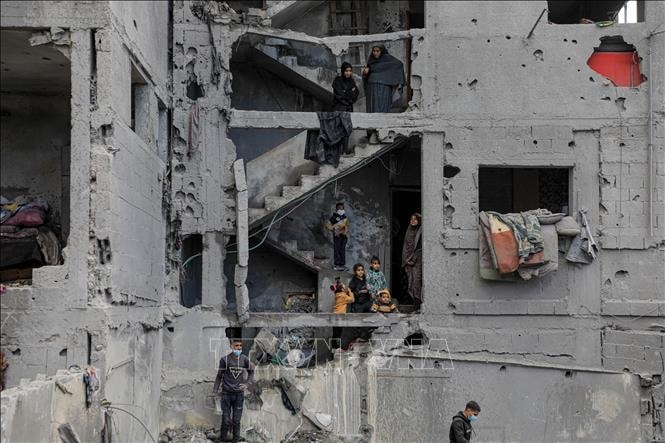Negotiations in Egypt between Israel and the Hamas Islamist movement in the Gaza Strip on a ceasefire in the Mediterranean strip are at a standstill, with neither side willing to compromise to reach an agreement.

On March 17, sources told The National newspaper of the United Arab Emirates (UAE) that Hamas once again rejected the US proposal put forward by Special Envoy for the Middle East Steve Witkoff. Instead, Hamas insisted on moving to the second phase of the agreement brokered by Egypt, Qatar and the US.
The US proposal rejected by Hamas included a 50-day ceasefire and the release of five to 11 living hostages and the return of half the bodies of the dead hostages, while Israel would free a larger number of Palestinian prisoners than under the January 2025 deal, according to sources.
Details of the proposal conveyed by sources appear to be similar to the “bridge proposal” presented by Mr. Witkoff in an interview with CNN earlier, under which the five remaining hostages, including Israeli-American Edan Alexander, would be released in exchange for the release of “a large number of Palestinian prisoners” from Israeli jails.
Mr Witkoff said the proposal was “convincing”, but added that Hamas had given an “unacceptable response” to the proposal and that “the opportunity is quickly passing”.
A Hamas official confirmed that the group's negotiators "had productive discussions with Egyptian officials, focusing on ways to promote the implementation of the ceasefire agreement after Hamas accepted the updated US proposal".
Sources confirmed that Hamas negotiators left Egypt on the night of March 16 local time, while Israeli negotiators remained in Cairo, to continue negotiations on March 17 with Egyptian mediators.
“Israel refused to discuss the second phase and even demanded that Hamas leaders in Gaza leave the strip,” a source said. However, Hamas rejected the proposal.
The first phase of a 42-day Gaza ceasefire ended on March 1 without agreement on the next phases, aimed at ensuring an end to the conflict between Hamas and Israel.
While Hamas has demanded immediate negotiations for a second phase, Israel has insisted that the first phase be extended and has insisted that any transition to a second phase must include the “complete demilitarization” of Gaza and the removal of Hamas, which has controlled the Palestinian territory since 2007.
In an effort to pressure Hamas, earlier this month Israel stopped delivering humanitarian aid to Gaza and cut off electricity supplies to Palestinians.